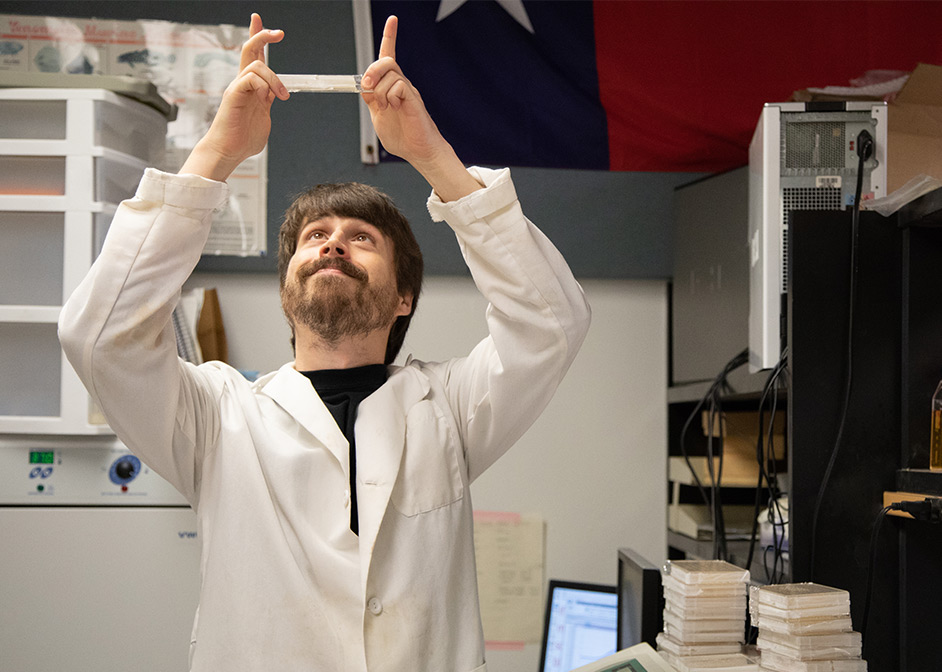Received Travel Honorarium to Attend SMBE’s Annual Meeting in Japan
Jason Tarkington, a University of Houston Ph.D. student in biology, was selected as a finalist for the Walter Fitch Award. This award, sponsored by the Society for Molecular Biology and Evolution (SMBE), honors the best presentation at the Walter M. Fitch symposium, which is held to showcase the work of young investigators. To be eligible for this award, applicants must either be graduate students or recent graduates of a Ph.D. program. Applicants come from all around the world.

As one of eight finalists, Tarkington received a travel honorarium to attend SMBE’s 2018 meeting, held in Yokohama, Japan. While at the meeting, along with the other finalists, he gave a 15-minute presentation on his research.
Tetrahymena thermophila: Model System for Studying Evolution
Tarkington, who is advised by associate professor of biology and biochemistry Rebecca Zufall, studies the repeatability of evolution. To do this, he uses Tetrahymena thermophila, a single-celled eukaryotic organism which reproduces using a mixture of sexual and asexual reproduction. Tetrahymena, which has a nucleus but reproduces at a rate equivalent to bacteria, offers an ideal system for answering key questions about evolution.
“We are looking at whether environment can affect the repeatability of evolution,” Tarkington said.
Repeatability of Evolution: Responding to Adaptive Pressures
Repeatability is when different populations respond to adaptive pressures in similar ways. An example of repeatability in evolution might be if two populations of the same species of mice found themselves on opposite sides of a canyon, completely isolated from each other, but both facing similar stressors in the environment, such as hot, dry weather, limited food, and predators.
If these two populations adapted in similar ways, such as developing similar camouflage markings and evolving to eat similar foods, then this would be an example of the repeatability of evolution.
Constraints on Evolutionary Fitness
In evolution, fitness is the probability of an organism to pass on its traits to the next generation, a trait that is indicative of how well-adapted it is to the environment.
“One of the big questions in evolution is whether or not a population’s fitness will be constrained in similar ways,” Tarkington said. “Does fitness always get optimized in the same way, or are there constraints that prevent that from happening?”
To test this idea, Tarkington grew cultures of Tetrahymena at different temperatures, under similar conditions of food availability. What he found was that adaptations to the availability of food were more predictable at higher temperatures.
“This would suggest the environment can impact the repeatability of evolution,” Tarkington said.
- Rachel Fairbank, College of Natural Sciences and Mathematics